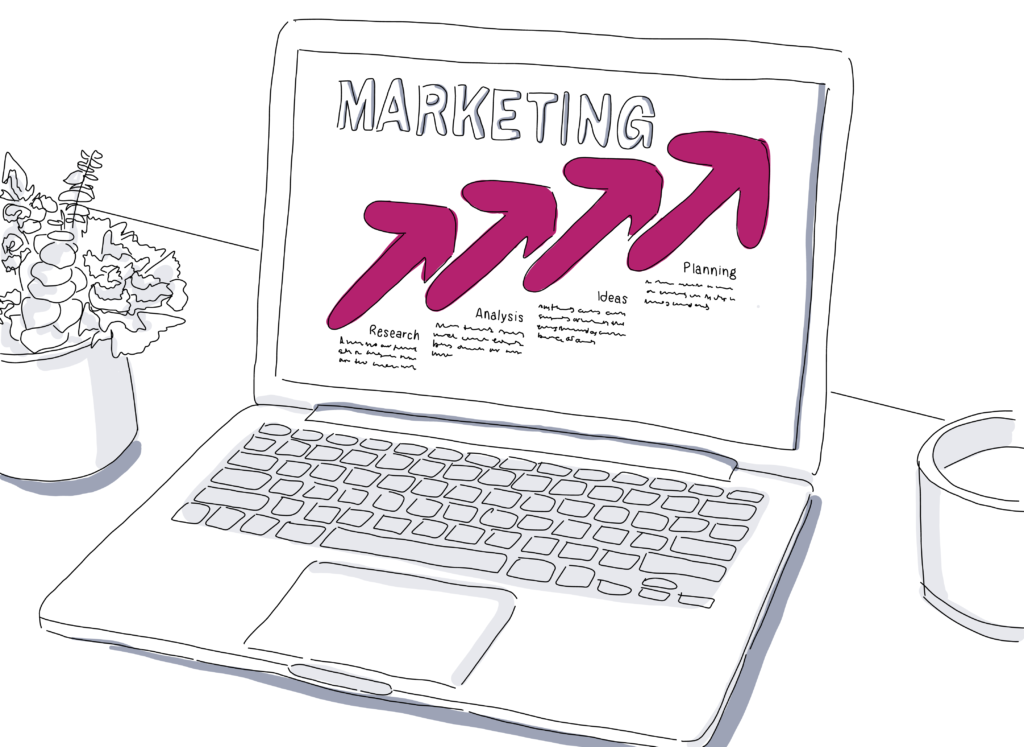
53 Proven Hotel Marketing Ideas & Examples to Win More Events & Group Business
Because the digital marketing landscape shifts so rapidly, it’s important that your hotel is using the best marketing ideas to drive new business.
Online marketing through content, social media, chatbots, and personalization could have a big influence on your hotel business this year. Your website’s user experience has also never been more important.
To help you take your marketing to the next level, we’ve broken the ideas up into a few different types and we share some examples of successful hotel marketing.
- Content Marketing Ideas
- Website Marketing Ideas
- Social Media Marketing Ideas
- Local Marketing Ideas
- Communications Ideas
- Even More Creative Ideas
- Great Hotel Marketing Examples
With these ideas and some inspiration, you’ll drive more leads and land more bookings ” for both guests and groups.
Explore 53 Successful Hotel Marketing Ideas
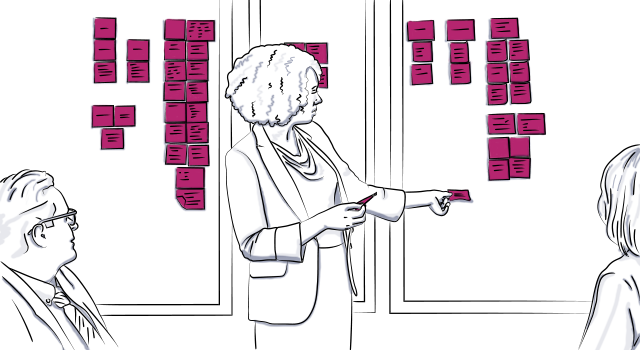
Discover the top successful content marketing ideas for hotels
1. Create a podcast for event planners.
In 2017, an estimated 67 million people listened to podcasts. That’s roughly 25% of the U.S. population over age 12.
Think of how podcasting could benefit your hotel’s marketing strategy. Consider creating a podcast about events you’ve hosted, planners you’ve met, challenges meeting planners face, event planning trends, how a specific event was brought to life, or amazing attractions in your area. You could even interview a different employee about their experience at your venue each week.
2. Write a search-optimized travel guide for your hotel’s area.
When meeting planners pick a hotel, they don’t just think about your space ” they think about the entire city and area. Highlight how planners can use the area around your hotel to bring added value to their attendees.
Use your website to post content about the restaurants, bars, and outdoor spaces available in your area. Your proximity to major tourist sites or downtown business areas, and accessibility from major transport depots can give you a boost in the eyes of event planners.
For example, courtyard spaces or waterfront access are a big bonus. Guests can take their lunches onto the grassy areas during break, or take a walk by the pier. If there are trendy restaurants or food-truck hotspots in the area, let event planners know that they’ll be blocks away from your city’s food culture.
For example, Hotel Indigo shares their employees’ tips on neighborhood attractions and eateries on in-hotel touch screens. Hotel Palomar in D.C. posts employees’ pictures and favorite spots for retail therapy and wellness options on their website. You could even launch a monthly email newsletter featuring what’s new about your areas hotspots.
[Tweet “Guests look to hotels to be their travel guide. Use your website post content about local hotspots”]
3. Share your hotel’s expertise through an online course.
You know your hotel best, and planners are eager for your knowledge.Teach them what you know (and prove your industry knowledge) with an online course. The course should cover something your hotel is particularly well-known for, and it should be taught by a subject matter expert.
Once you’ve created your content, there are plenty of ways to share it:
4. Do a Q&A with an industry expert at your hotel to drive marketing results.
If a video course seems to complex, simplify the concept and create a Q&A with an industry expert. After doing an interview, publish their responses on a blog, on social media, or in an email newsletter to planners.
This kind of content works because the experts you interview might bring their audience to you. (It’s even better if you interview experts who have a big social following!). Plus, you can drum up audience engagement by allowing people to submit questions ahead of time.
5. Create useful templates for event planners.
Printables, downloadables, and templates are a powerful form of content marketing. They offer a huge benefit to the potential customer¦ and at the same time, they give you an opportunity to generate a lead.
What kind of templates are useful for hotels?
- An info sheet, so planners can fill out crucial details before a hotel inspection
- A template to use for calculating event costs
- A checklist for planners that details everything your hotel offers
6. Make helpful videos to solve issues for potential event customers.
Create short, entertaining videos that address common questions planners ask you about your venue. Think of it as a video FAQ page. You can publish a page on your site that lists all the videos, making them readily accessible to planners.
Why does this work? First, videos are more popular than ever. They also can be a signal that you’re invested in your business. Best of all, planners get the info they need quickly, which saves your sales team time answering basic questions.
Discover new website marketing ideas for hotels & venues
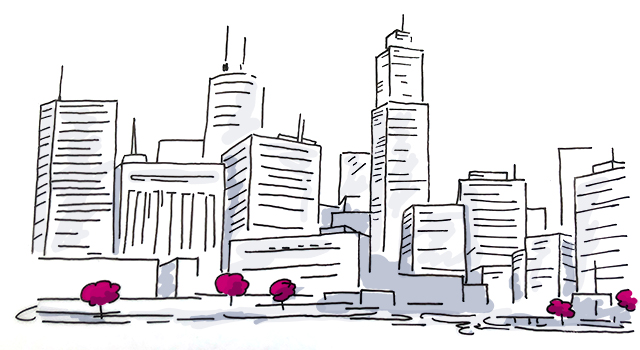
7. Optimize your hotel’s website for voice search.
More and more these days, planners and potential clients use voice search to get quick answers. So when the ask, Alexa, how many rooms are in the XYZ Hotel? you need to make sure Alexa knows the answer.
How? Tailor your SEO strategy (and local SEO venue strategy), and content so it’s simple for smart speakers to provide answers. Make information on your site as clear as possible, so search engines can find it. Figure out what keywords your target audience is searching for, and think about how they’d ask them out loud. Use alt tags and descriptions on your images and all parts of your website to allow for easy scanning and surfacing through voice search.
8. Create a virtual tour on your hotel’s website using photos, videos, or 3D diagramming.
A virtual tour generates a lasting impression and provides planners the information they need right upfront. Plus, potential planners can choose what they want to see, take a virtual walk through your hotel, and picture their event in your space.
Big hotels such as Hotel de Paris and Marina del Rey already offer virtual tours, and the right venue marketing software can make it easy.
9. Post reviews and testimonials on your hotel’s site.
Your potential clients are going to read reviews no matter what, so you might as well put them on your site! You can ask past planners for custom reviews, or you can pull reviews and quotes in from review sites like TripAdvisor.
10. Create an app for event planners.
Tech-savvy customers might appreciate an app that helps them navigate all that your hotel has to offer. The app can provide your prospects with an easy approach to book rooms or any service in your venue.
Explore new social media marketing ideas for hotels
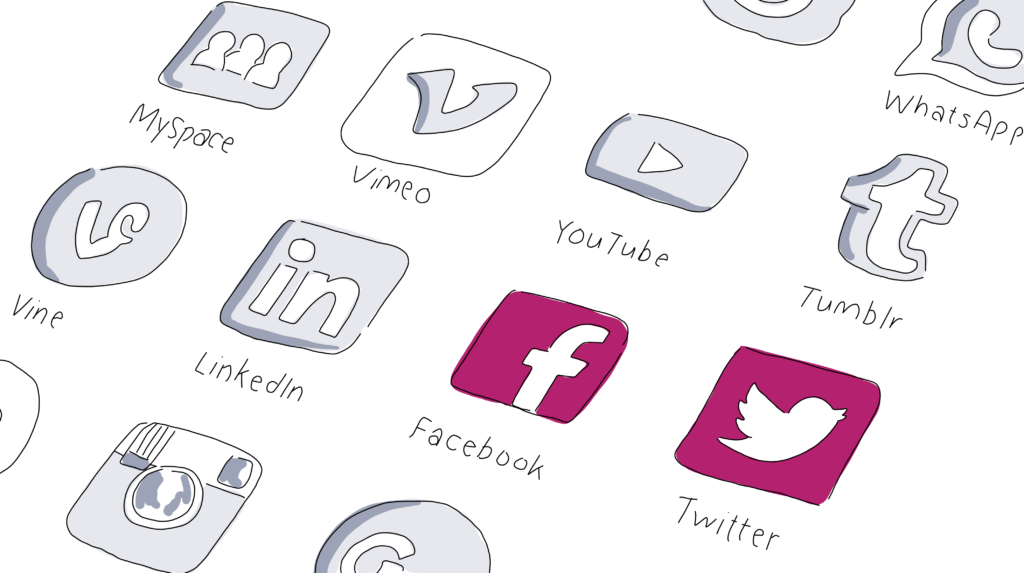
11. Post videos of your hotel with Facebook Live & Instagram Stories.
Facebook Live and Instagram Stories have become wonderful ways to connect with your target audience. Why? First, it uses video content ” and everyone knows video is king. Even better, it sends notifications to anyone who likes or follows you.
If you’re wondering what kind of content to show, here are some ideas:
- A tour of a space in your hotel
- If dining is a main attraction at your hotel, ask a chef to do a tutorial
- Choose an employee ambassador to answer questions
Afterward, use your Facebook Insights Page to see when your followers are online to get the timing right. Make sure you stay live for at least 10 minutes to optimize reach.
12. Run a contest with a prize for event planners.
Launch a contest or giveaway where local planners can win a great prize that matches up with their needs. Think: a meeting in our space for certain dates, a free upgrade during an event, free hotel rooms for the event staff. (And be sure to check the sweepstakes laws in your area.)
Social media contests can be as simple or as complex as you’d like. Consider how you are getting people to participate: For example, offer an entry for new Twitter followers or for tagging your hotel on Instagram.But don’t ask for too much! Keep the prize and the amount of effort required to qualify aligned.
13. Create hotel employee ambassadors.
Sometimes the best marketing ideas for hotels come from within. So ask your hotel employees to get in on the marketing action
Get new local marketing ideas for hotels
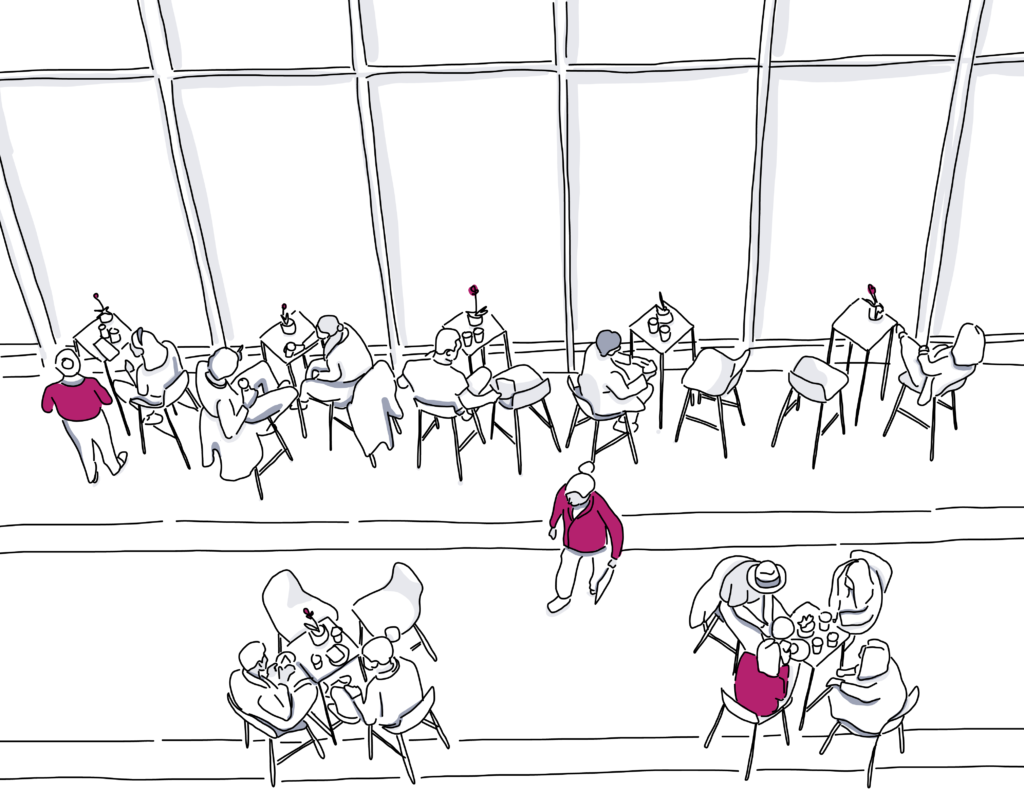
14. Create a local dining experience in your hotel.
Because of the farm-to-table trend, hotels that create localized menus will attract customers. Offer seasonal foods that are locally available at peak harvest. For example, The Hermitage Hotel in Nashville harvests vegetables and sources grass-fed beef from their private, regional farms.
15. Host a local event at your hotel.
Word-of-mouth marketing makes a big difference, and it’ll have a bigger impact if more people can speak about your hotel. To get locals into your space, invite neighbors to a themed event. Promote it online, with press release, and through local media.
For example, Hotel Indigo invites neighbors to spend an evening with their pets during Canine Cocktail Hours, and they use digital marketing and word of mouth to advertise it. By becoming a destination for locals, you’ll increase local business and attract guests looking for an authentic hotel experience.
16. Create blesuire experiences at your hotel.
These days, business travelers are looking for memorable local experiences while on their business trip ” aka
[Tweet “Position your hotel as one that can offer an unforgettable experience for business travelers.”]
17. Partner with airlines.
Because many people travel for events and planners plan events in other cities, air travel is important. Partner with a popular airline on a promotion, or buy ad space in their in-flight magazine. This can help you get in front of a lot of targeted potential customers.
Pick up new marketing communications strategies for hotels

18. Let potential customer choose how to contact you (including via text).
Some event planners like to talk on the phone, some prefer email or text. Let them come to you however they like. Set up a number that can take both calls and texts, and publish it on your website and across your social media profiles. And make sure your email address is easy to find on your website, all your social channels, all search engines, all venue directories and on all your staff signature blocks. It would be a shame to miss a lead because they don’t know how to get in touch with you.
19. Use chatbots to improve your hotel’s customer experience.
More businesses are adding chatbots to their content marketing strategies to help improve customer engagement. Chatbots can provide timely, relevant answers at all hours of the day.
And chatbots no longer sound like robots. Machine learning and artificial intelligence have made chatbots more personable and friendly, leading to higher customer satisfaction.
Plenty of tools, such as Drift and Hubspot, make it easy to add a chatbot to your site. Find one that’s easy to train your employees to use, and then create a handful of pathways that lead customers to the answers they need.
20. Take great photos of your hotel and venue space.
It sounds simple, but having visual content that beautifully and accurately represents your venue can create a marvelous first impression. Include a photo gallery of your event spaces on your site. If you can, take photos during an even and when
21. Send out press releases about events and updates.
Press releases are ideal for announcing major happenings at your venue. This could be new or notable events, services, partnerships, or developments. It’s an easy way to market your property, grow the reach of your brand, create buzz, or and get onto customers’ radars.
Get even more creative hotel marketing ideas
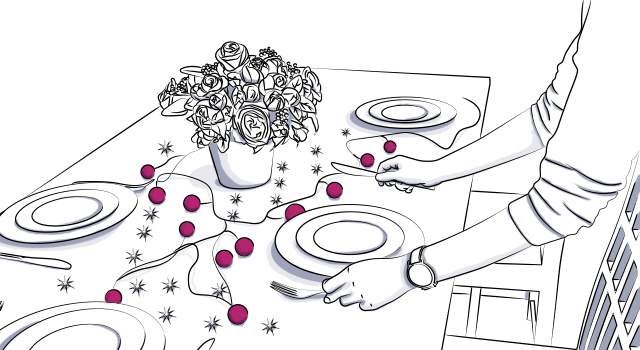
22. Offer add-ons to event planners.
An add-on or upgrade can seal the deal for guests (and for planners, if you include it in the room block). Weave in customized add-ons like these when customers go to book:
- Luxury amenities
- Free transportation to a major convention
- A free drink at the hotel bar or restaurant
- Access to reservations at high-end restaurants
- Tickets to a local music venue
23. Launch a loyalty program for event planners.
Let guests ” and even planners ” accumulate points every time they book a room or service at your hotel. The more points they earn, the more benefits they get in terms of discounts and upgrades. These types of programs can help close a deal now and in the future.
24. Create a guarantee or promise for hotel guests.
Offer something that minimizes the risk of trying something. Sometimes this is free shipping and returns, other times it’s a money back guarantee.
25. Personalize the guest experience from start to finish.
Technology makes it easy to personalize every interaction a potential customer has with your venue. It starts with something simple like Hello, Name when they log into your website. And it can be as targeted as an email filled with content about a space they rented.
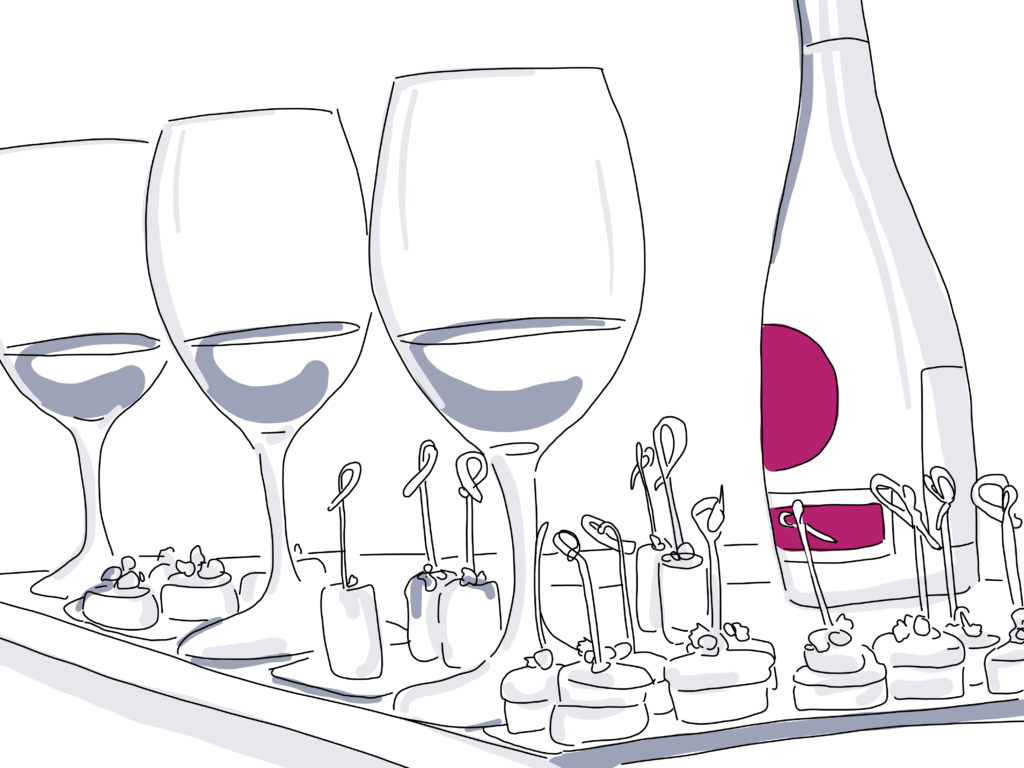
26. Promote seasonal catering menu items to your newsletter subscribers.
You can also let guests know about featured chefs, farm-to-table options, and locally sourced foods while you’re at it. Show the prepared dishes and interview the creators to learn more about why it’s so perfect for that time of year.
27. Show off new renovations or locations.
The hotel industry is expanding, especially when it comes to boutique properties. These smaller businesses have claimed the title of the fastest growing hotel segment last year. And they show no signs of slowing down.
Instead of mentioning your upgrades in a newsletter, try creating a campaign around it instead. You can use all the following elements to bring in crowds:
- Ribbon cutting ceremony. Invite loyalty members and current hotel guest to celebrate the changes with you.
- Blog collaboration with local tourist hotspots. Have them feature updated interior photos as well as a video walkthrough.
- Countdown landing page. If you can’t do a big reveal event in person, host one online.
- VIP Welcome Back package. Send out an email newsletter to your best clients and offer them something special if they book their stay after the renovations are complete.
28. Use your destination in your pitch.
Start a content marketing series focused on your local area and everything that’s amazing about it. You can include blog posts on the best date night restaurants nearby. And podcasts with local celebrity guests. You can even do behind the scenes tours at significant landmarks like concert venues, government buildings, and theaters.
29. Answer hotel related travel questions on Quora.
Quora is a platform where people ask and answer questions. It’s a great marketing tool to prove your authority about a city or travel tips in general. Start out by answering at least one a week from a branded account. Make sure to include a bulleted list, at least one example, and a minimum of two photos if you want a better ranking.
30. Provide demographic specific one-pagers that your hotel’s website visitors can download.
For example, if group business is important to your strategy, create a case study based on a past client who reflects your goal for future business. Their name, title, and professional headshot should also be included. Grab a quote or two from their testimonial then share it on social media and link the PDF to it.
31. Engage potential guests using Instagram stickers.
They provide a lot of tools and opportunities for fun conversations with your target audience. Hotels can use the poll feature to see which famous menu item is more popular. Or try countdown stickers for upcoming events. You can even set special pricing reminders during the off season to help promote time sensitive opportunities.
32. Make a highlight reel for every event that takes place at your hotel.
Use it on your rental page to show off meeting rooms, grand halls, and banquet centers. It helps planners visualize the space and get ideas for their own event. Plus it’s great social media material.
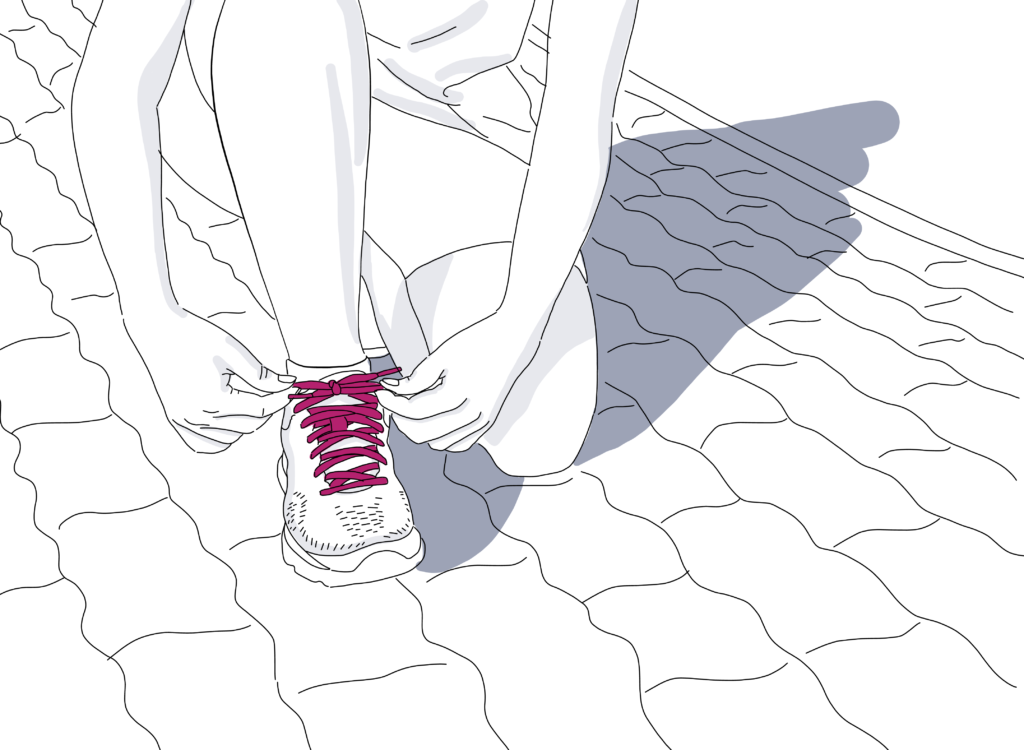
33. Partner with personal trainers to offer in-gym coaching sessions.
The trainers will get new potential clients with a space to work with them in. And the hotel will receive a finder’s fee in exchange. Or, at the very least, take advantage of digital fitness trends by offering on demand workout videos in your fitness spaces.
34. Create a Spotify playlist that represents what your guests do when they visit.
For example, if your hotel brand is all about staying active and enjoying the great outdoors, use tunes like the one on this playlist for inspiration. Or if your location is more about relaxing, try some tropical sounds. Guests can listen to it when they’re traveling to get them in the right headspace or while they’re visiting.
35. Interview local travel bloggers about the hidden gems near your property.
Stretch out your interview materials by recording it as a video. Then extract the audio to create a podcast that you can share on iTunes, Google Play, SoundCloud, and even YouTube. If you make the video vertical it’ll be easy to clip out and share on social media. Afterwards you can publish an edited transcript of the interview to your blog and tweet select quotes.
36. Create a free self-guided tour map of the area.
Walking or cycling, a self-guided tour only requires you to do the work one time. Try a bar crawl, a photo opp tour, or a bird’s eye view of whatever city you’re in. Or, if you want to keep the fun indoors, host a kid’s scavenger hunt with a treasure map. Please themed stuffed animals in the hiding spots and reward those who spot all the creatures with some stickers or toys.
37. Set up a referral link program with local tourist attractions and popular restaurants.
Symbiotic partnerships like these expand your audience and promote cross business for your collaborators. These examples show how flexible you can make the terms.
38. Sponsor the WiFi at the airport.
WiFi sponsorships help businesses by giving them exposure to large crowds. Because most travelers will have already booked accommodations online ahead of time, try promoting a different aspect of the property. Spas, day parties, and ticketed special events all work nicely for this method.
39. Give your venue’s website a facelift every 18 to 30 months.
It will help keep your brand fresh. Plus you’ll have the opportunity to improve user experience, freshen up photos, and update any outdated information with this regular redesign. If you’re worried about affecting SEO, follow this guide.
40. Shine a spotlight on your staffers with one on one interviews about their personal journeys.
Or you can do what Melia Hotels does and give loyalty members special access to local recommendations from staff members.
41. Host a pop-up spa event in the lobby.
There are a lot of benefits to hosting a pop-up spa. The key to throwing one is to pick a series of small services that take no more than 20 minutes at a time. Activities like chair massages and basic moisturizing facials work well for this event type. Have your guests signed up for an assigned slot and make sure to schedule in 5 minutes in between each session for transition and clean up.
42. Create relevant YouTube tutorials.
The recipe for success when using YouTube marketing for hotels is to follow a formula. Look at video performance statistics to see what has worked well for your brand in the past. If you don’t have enough data, follow best practices. Things like creating a strong hook in the first 15 seconds of your video and ending on a strong call to action all make a difference.
43. Inspire guest-generated social media content.
Host contests and regularly share guest-generated content campaigns on social media. Once you get the word out, guests can actually participate. Give them hashtags that allow them to express themselves creatively. For example, you can challenge guests to post the funniest hotel lobby selfie or the most interesting landmark photo.
44. Update your TripAdvisor profile every season.
The site will supposedly reward you with better search result rankings if you do. Plus you can post seasonal deals, clean up old information, and double check that all messages received a response.
45. Explore a new Google Display Ad bid strategy.
Refresh your strategy with one of the many ideas in this video.
Think about which parts of your marketing funnel you could make the biggest impact on by adding personalization. For example, if your goal is to raise awareness about your hotel, tag people in your social media posts to make them feel involved. If driving leads is more important, consider offering a one-on-one free check-in appointment or a personalized gift.
Now, See Hotel Marketing Examples that Win with Guests & Groups
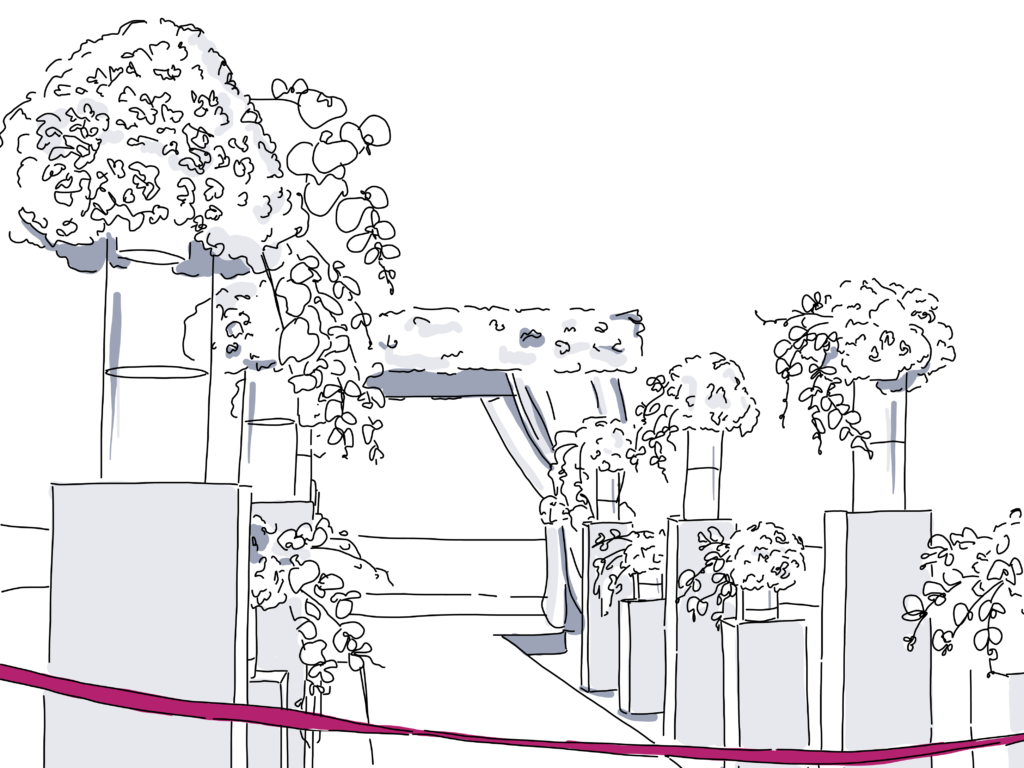
46. IHG shows football fans a little #HomeTeamHospitality.
Before the NFL’s biggest game of the year, Atlanta officials expected a migration of about 150,000 visitors for the weekend’s championship festivities. IHG (Intercontinental Hotels Group), whose U.S. offices are based in Atlanta, decided to show a little extra hospitality by partnering with mega-celebrity Nick Cannon and fellow hometown brand CocaCola to play host.
Aptly dubbing the campaign Home Team Hospitality, IHG promoted the event across their entire portfolio of hotel brands. Fans and patrons could enjoy Holiday Inn Express’ Express Start® Breakfast Pancake Station, which served up pancakes out of a food truck, or game it up with the Crowne Plaza® Game Break ” a video game projected on the side of their hotel building!
Why is it good marketing?
As a hospitality company, it’s imperative to show a little, well¦ hospitality. IHG took that to heart in their role as host. Better yet, they did it by devising a cohesive hotel marketing strategy across their portfolio, staying true to the individual brand identities and consumer segments of each in the process.
Still, it wasn’t just the hospitality that makes this a great marketing campaign. IHG executed a multi-prong campaign to perfection, executing a symphony of influencer marketing, in-person event marketing, and social media to perfection.
When it comes to marketing in the modern age, the whole is greater than the sum of its parts. Brands can’t achieve success with an exclusively digital strategy anymore, and that’s true for hotels as much as anyone.
47. Hilton connects guest to their cities via the Explore App
In the hospitality industry, building brand loyalty is a must, but it’s not as easy just rolling out a rewards program. Hotels need to be travel guides for guests and groups, who are looking for authentic experiences outside of the hotel walls ” from dining to nightlife and beyond. And it’s no different for business travelers.
Hilton’s Explore App connects members of their rewards program (Hilton Honors) with their host cities, offering up recommendations from local Hilton staff as to area hotspots and experiences. The app even goes so far as to recommend specific menu items, the best times to go, and photos taken by team members.
Why is it good marketing?
Authentic local experiences aren’t just important to leisure travelers, they’re increasing in importance for business travelers and group business as well. In fact, in DMAI’s Decision to Attend Study, 79% of convention and tradeshow attendees replied that if they enjoy their experiences at meeting destinations, they’re likely to return for a leisure stay.
Hilton’s app is a great way to woo and retain members of its rewards program, because it gives members access to the experiences they crave in addition the monetary perks that span the spectrum of rewards programs.
48. Hilton helps planners be WowMakers.
But what about marketing for groups & meetings? When it comes to landing group business, it’s time to cater to the planner. Enter: Hilton WowMakers. WowMakers is a series of resources for and success stories from planners, illustrating how the brand can be a powerful ally to event teams in the meeting design process.
Planners who visit the WowMakers site can view videos with tips from other planners who have found success at Hilton. There are also a number of infographics and other resources aimed to help find the right meeting location, drive more meeting ROI, and manage time more effectively.
Need to submit an eRFP? WowMakers can help with that too.
Why is it good marketing?
Hotels are no longer fighting one another for group business, they’re also competing with Airbnb for room blocks and a growing desire for unique or nonconventional venues. When it comes to winning group business, planner loyalty pays off in a big way ” especially with corporate and association planners, who are likely to plan events annually (or even multiple times a year!).
Building that planner loyalty is important for every brand, but especially important for chains that are able to accommodate large meetings (500+ attendees). For these spaces the meeting pool is slim, but the rewards are huge. Meetings with 500+ attendees only make up about 4% of the total pool of meetings booked, they amount to 39% of total group business in the industry.
Winning repeat business for these spaces amounts to huge money, and that starts with setting your brand apart by being a true ally to planners.
49. Marriott bans single-use straws
In 2017, Marriott set ambitious sustainability goals of reducing the amount of landfill waste it produces by 45% and responsibly sourcing its top 10 purchase categories ” both by 2025.
As part of that initiative, the hotel giant has announced that it will eliminate single-use plastic straws and stirrers across its portfolio by July 2019. With more than 6,500 properties worldwide across 30 brands, that amounts to more than 1 billion straws and over a quarter billion stirrers per year.
Why is it good marketing?
In the modern era of conscious consumerism, cause marketing results in ROI for brands that are willing to commit. Not buying it? Look to the numbers: 87% of consumers say that they’re more likely to trust a brand that prioritizes sustainability.
The move by Marriott plays to the recent popularity of sustainability issues, particularly concerns of single-use plastics like straws having a dramatically negative effect on sea turtles and other wildlife. The ban on plastic straws paints Marriott in a positive light to event planners and guests with a play that’s as much a brand marketing tactic as it is a shift toward corporate responsibility.
50. Le Metropolitan Paris plays the influencer game right.
Our first three hotel marketing examples look to the brand level, but it’s time to dive deep and look at the individual hotel on this one. Specifically, the spotlight is on Le Metropolitan Paris and its influencer moves on Instagram.
With more than 23,000 followers the Tribute portfolio hotel is a powerhouse in the Instagram game. To put that into perspective, that’s about four times as many Instagram followers as the Wyndham brand-wide Instagram.
How did it get to so many followers? It’s not just the picture-perfect photos. It also gets a big boost from some savvy influencer marketing, like this post from famous streetwear blogger @alexandraguerin.
Why is it good marketing?
Packing 11x the ROI of traditional marketing, hotels can’t afford to sleep on influencer marketing ” especially in an industry where popular travel bloggers are a dime a dozen.
While Metropolitan Paris has 23k followers, it understands that number pales in comparison to the nearly 150k followers of Alex Closet. It also shows a keen understanding of their target demographic, who are closely aligned with the trendy, upper-class demo that likely makes up a multitude of @alexandraguerin’s following.
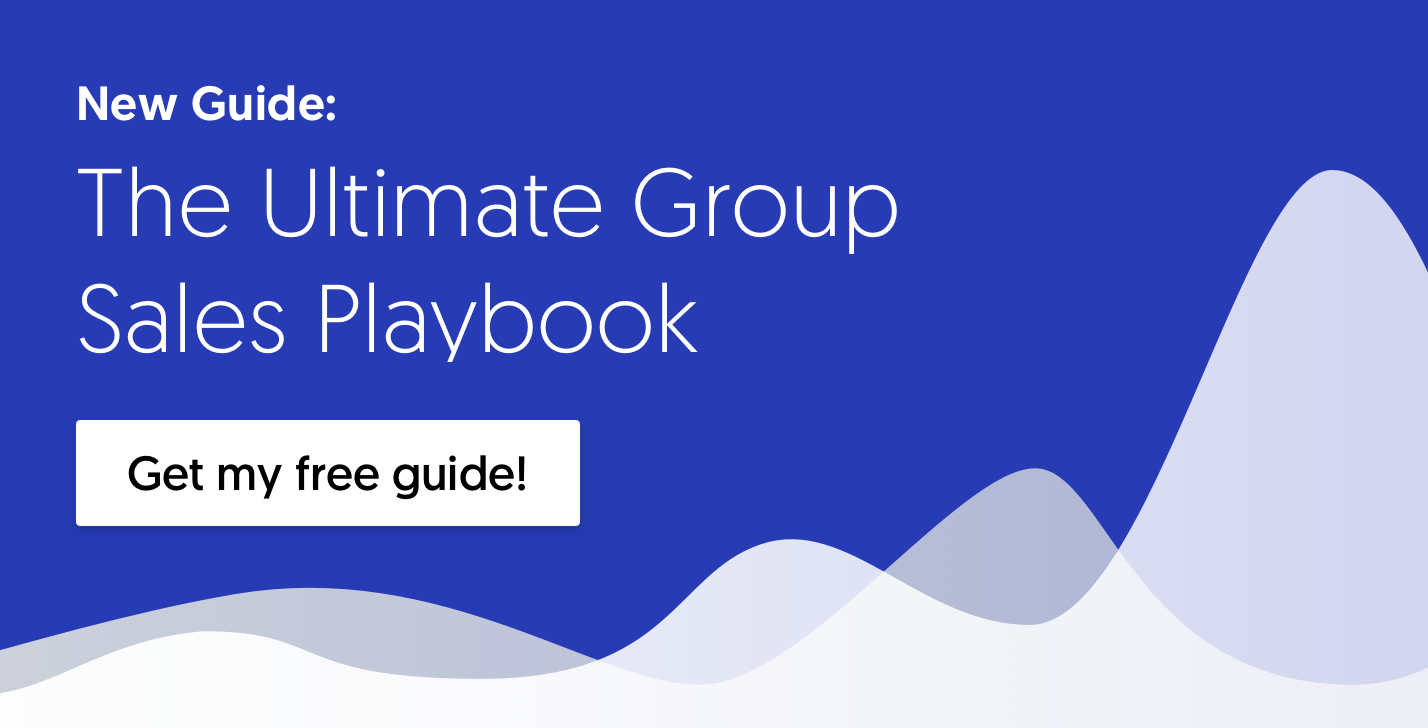
51. Wyndham wants planners to Go Meet.
While virtually every chain offers loyalty programs for business and leisure travelers, only five major brands offer loyalty programs for group business: IHG, Wyndham, Marriott, Hyatt, and Hilton.
However, of those programs, only Wyndham’s Go Meet doesn’t have a cap on the number of points that planners can earn per event. Every dollar spent on F&B, meeting space rental, and room equals a point earned, and points can be redeemed for a prepaid Visa gift card. Planners can then use that gift card on future meetings, travel, and more.
Why is it good marketing?
When we surveyed our audience of 23,000 planners and properties, 85.7% of event professionals responded that they thought that rewards programs for groups and meetings were a worthwhile idea. Despite that, chains have been slow to roll out rewards programs for meetings in an era where success hinges on planner loyalty.
Wyndham differentiate its own program by removing the cap planners can earn per event, encouraging planners (especially those planning larger meetings!) to book inside the portfolio.
52. Kimpton’s going #OfftheRecord to keep up with pop culture.
How do you keep up your cool as a trendy boutique hotel chain? Kimpton’s doing it with music.
In their Off the Record series, the brand is booking some huge artists and bringing them to intimate spaces at their hotels. From hip indie acts to popular newcomers like Moon Taxi, each of the booking exudes the cool that we’ve come to association with the Kimpton name.
There’s also an element of exclusivity involved, as not just anyone can grab a ticket. Those who want to attend must redeem rewards points or book VIP stay packages to snag a ticket.
Why is it good marketing?
Live music is growing in popularity ” especially among millennials. In just one year, the average number of millennials who attend a live music event at least once throughout the year increased from 60% to 66%. And just who do you think Kimpton’s target demographic is?
With the Off the Record series, Kimpton is promoting its brand image and capitalizing on the millennial desire for experiences over material possessions, all in one. It’s also one of the most unique loyalty rewards out there!

53. Marriott gives meeting planners a Pinterest-esque experience.
Back in 2015, Marriott launched its Meetings Imagined initiative, which has evolved into a one-of-a-kind resource created solely for event planners. One of our favorite parts of that initiative is the My Idea Board section. Here, planners can pin their favorites from the many ideas available in the picturesque Inspiration Gallery section.
Ideas range from desert to decor, and all show the ideas in action at real Marriott portfolio properties. By clicking on an idea, planners can find out more about the idea, which purposes it best serves, and even click through to learn more about the property.
Why is it good marketing?
Event planners are always looking for inspiration, and a key source of that inspiration is Pinterest. Marriott uses the same sort of template, but leverages the ideas as a means of promoting their meeting spaces and properties. Planners able to imagine their events at Marriott properties, with tangible examples of what successful execution might look like.
You might have noticed that a lot of these hotel marketing examples focus on brand loyalty. That’s because we can’t say it enough: Planner loyalty and repeat group business are major keys to success in any hotel sales strategy. Meetings Imagined shows planners that the chain is the type of partner they’re looking for in the event process.
Don’t take it from us: tell us which marketing ideas for hotels are the most viable for your team! Tell us on Twitter.
Now You’re Ready to Implement the Best Hotel Marketing Ideas!
Up next, discover key UX trends to incorporate into your hotel’s website design, and learn more about using event diagrams as interactive content on your website to capture leads.
Quick thoughts on hotel marketing ideas:
Identify a target customer, personalize their experience as much as possible, embrace the technology and advancements that align with your image, and highlight your successes through as many channels as you can.
Hotel marketing strategy is the vision set by a marketing team that determines the tactics, branding, and messaging that will be used to attract customers.

